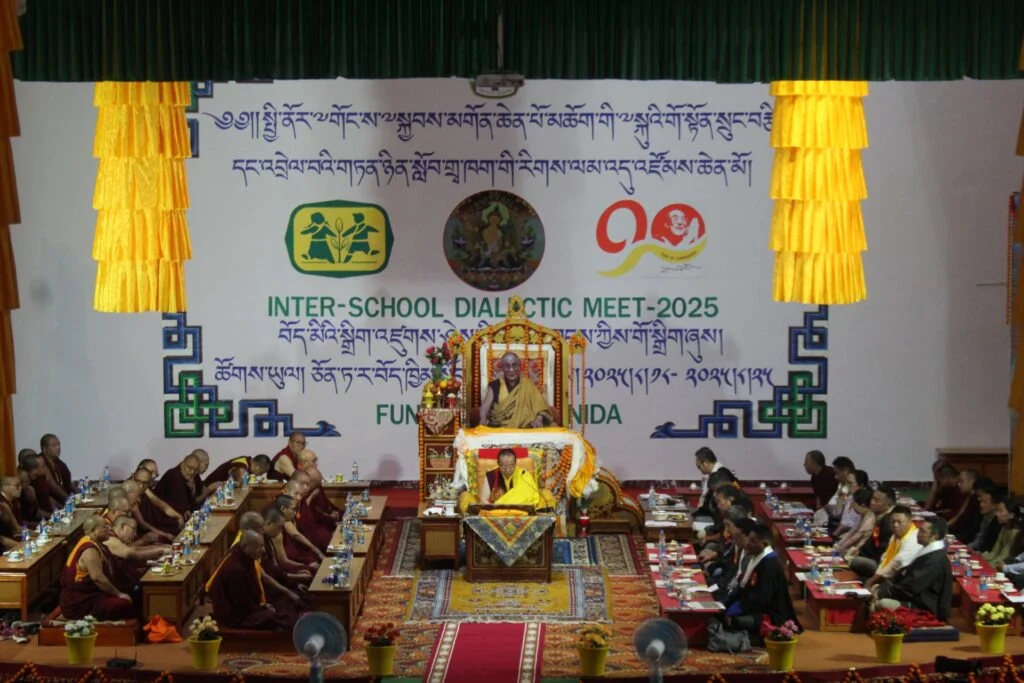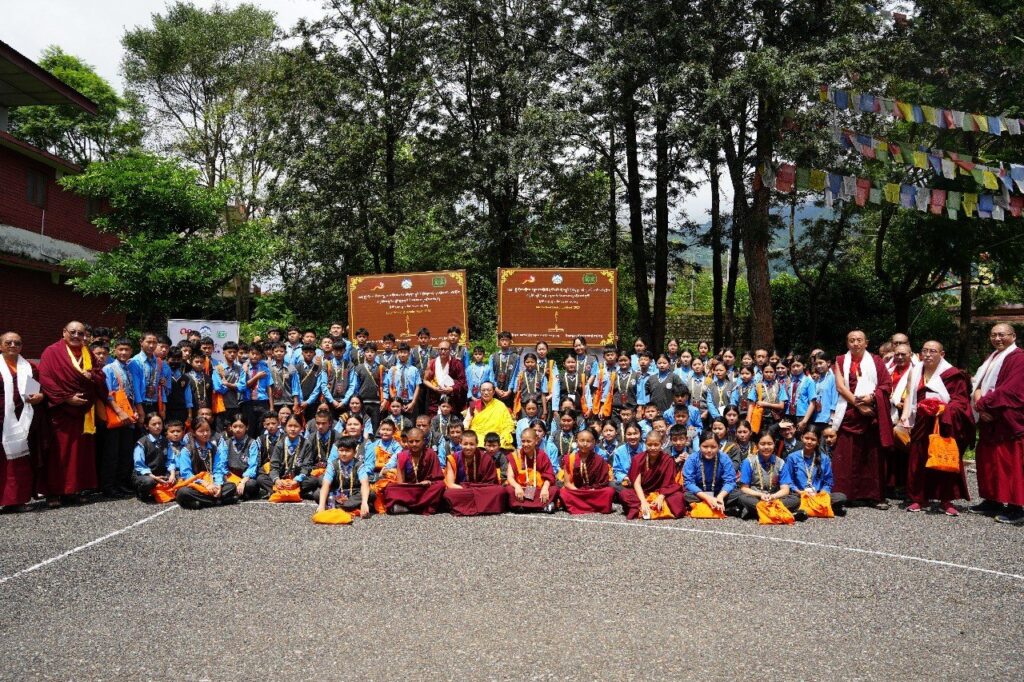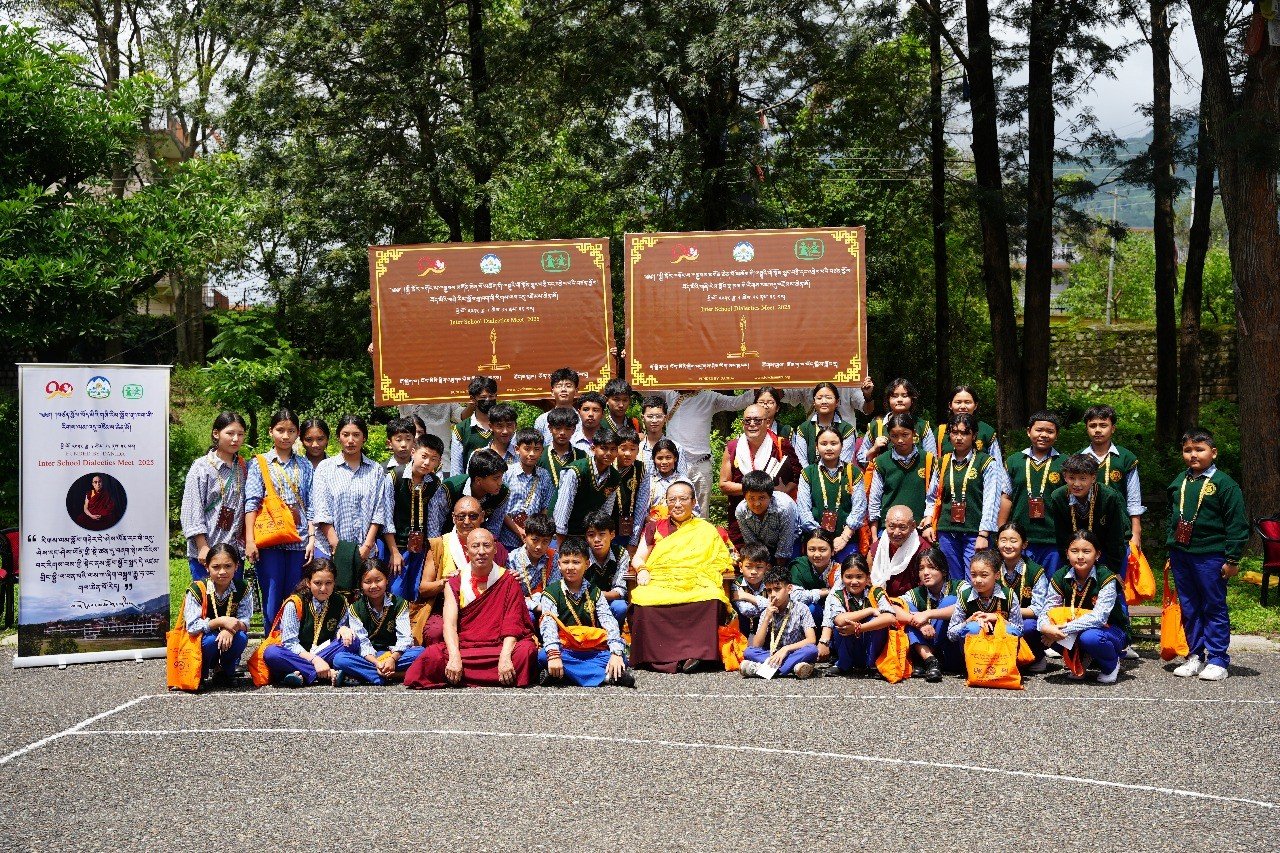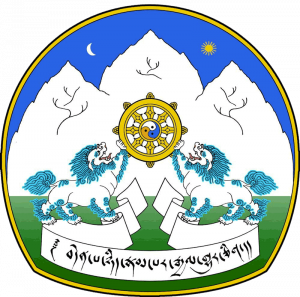
Dharamshala: On 18 August 2025, the Department of Education, Central Tibetan Administration (CTA), organised an Inter-School Dialectic Meet with the participation of 26 Tibetan boarding and day schools from across India at the Tibetan Children’s Village (TCV) School, Chauntra.
In the morning session, representatives of TCV Chauntra and the Department of Education extended a warm welcome to Kyabgon Drupwang Pema Donyod Rinpoche, the 12th Chamgon Kenting Tai Situpa. Following this, the ceremony began with the gathering of distinguished members of Parliamentarians, and Tibetan Settlement Officers, guests from various organisations, staff and student participants who had come from different regions.
In his opening remarks, Passang Tsering, Director of TCV Chauntra, welcomed the gathering and presented a brief report on the school’s activities. He expressed gratitude at the opportunity to host the Inter-school Dialectic Meet at TCV Chauntra.
Following that, Ngodrup Tenpa, Education Officer at the Department of Education (DoE), provided an overview of the history and background of the Inter-School Dialectic Meet. He explained that although the Department had initially scheduled separate meets for schools in Mussoorie and Dharamshala this year, the occasion coincided with the 90th Birth Anniversary of His Holiness the 14th Dalai Lama, which has been dedicated as the Year of Compassion by the Central Tibetan Administration. To commemorate His Holiness’ kindness, schools from South India and Northeast India were also specially invited, making this a collective inter-school dialectic gathering.
He further noted that the event saw participation from 26 schools with students above the sixth grade, each accompanied by a dialectic teacher. A total of 198 students – 100 boys and 98 girls – are taking part in the meet. The daily programme consists of six hours and forty-five minutes of sessions, including three hours of student debate and one hour of consultation with Buddhist philosophy teachers from each school.
Commending the participants, Tenzin Dorjee, Head of the Academic Section at the Department of Education, highlighted the importance of dialectics in Tibetan schools. He recalled the special guidance of His Holiness the 14th Dalai Lama during the 2009 Education Conference, where His Holiness emphasised the significance of logic and dialectics in education.
Tenzin Dorjee further explained that, following His Holiness’ advice, the Department of Education has since developed a curriculum to introduce logic dialectics in primary schools, published textbooks, organised dialectical debates and workshops for Tibetan, science, and mathematics teachers, and initiated other logic-related programmes.
He also noted that dialectics, like other academic subjects, have designated examinations and percentage allocations in report cards. The Department of Education continues to provide periodic support, while schools actively organise dialectic meetings and dedicated ‘dialectic days’.
The chief guest, Kyabgon Drupwang Pema Donyod Rinpoche, addressed the gathering of students, faculty members, and the public at the Inter-School Dialectic Meet. He spoke about how, in ancient times, through the kindness of the Dharma kings, the Tibetan script was created and Buddha’s teachings—particularly the logic of reasoning—flourished in Tibet, highlighting their historical significance and value.
Chamgon Kenting Tai Situpa Rinpoche further explained that “while the study of logic and Buddhist philosophy was once limited to monks, today both lay and monastic students in primary schools have the opportunity to learn dialectics. This development, he noted, is due to the unique kindness and far-reaching activities of His Holiness the 14th Dalai Lama, particularly His Holiness’ four principal commitments, one of which is the preservation of religion and culture.”
Rinpoche further emphasised that the purpose of studying logic and engaging in debates is to develop a deeper understanding of the nature of phenomena and their reasoning, rather than to create conflict or arguments. He explained that the study of dialectics begins with basic concepts, such as colours, and extends to profound cause-and-effect relationships—for example, examining whether Buddhahood has causes, conditions, and results.
Rinpoche also reminded the gathering of the auspicious news that His Holiness the Dalai Lama will live beyond 130 years. He urged students and participants to align themselves with His Holiness’ noble intentions, describing it as a meaningful contribution to His Holiness’ long life and stability. He also shared about his own hundred-day Tara Yishin Khorlo retreat dedicated to His Holiness’ long life.
Finally, the opening ceremony concluded with a vote of thanks delivered by Tenzin Dolma, Principal of TCV Chauntra, who expressed gratitude to the chief guest, distinguished guests, participating students, and the public.





